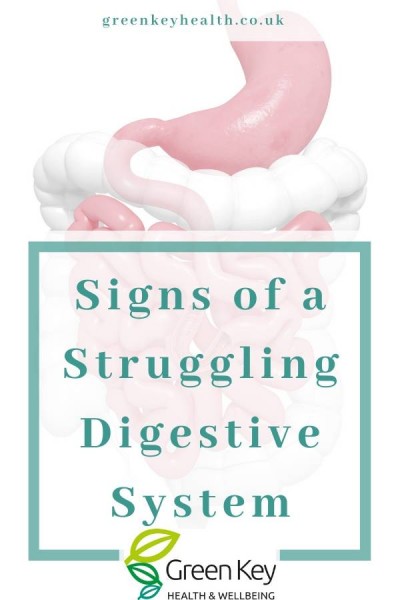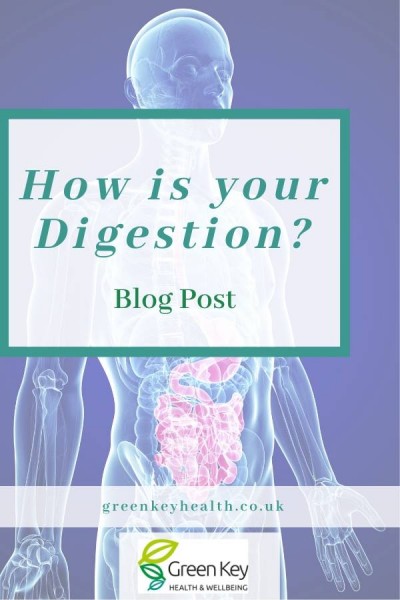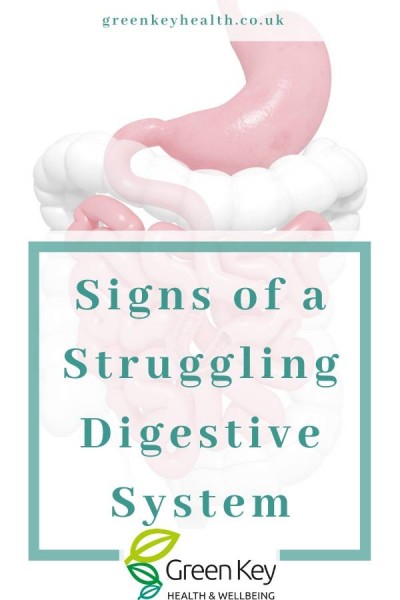
The digestive system is a system that processes organic matter into nutrients and waste. How good this system is depends on energy levels, state of mind and body as well as longevity. In general, digestion becomes less effective as we age.
It is an integral part of the body and when not functioning correctly has knock-on effects that can disrupt just about every system, especially immunity as 80% of the immune system is located in the gut-associated lymphoid tissue (GALT). Poor digestion also affects the brain, nervous system, hormonal balance and the ability to detoxify through the liver and skin.
What effects the functioning of the digestive system?
Lack of nutrients and wrong type of foods will lead to faulty digestion, faulty absorption and abnormal gut reactions such as bloating, inflammation, gas, various infections and poor elimination. The signs that our digestion is not functioning correctly are many, however some of the more common are:
- Regularity – inability to pass a well-formed stool at least once daily
- Bloating and gas
- Cramping and pain
- Transit time that is too fast or slow
- General fatigue
- Dull or poor skin
- Frequent colds and flu
 Dis-ease in the gut is not only caused by the wrong type of foods, poor absorption and elimination, an inadequate population of healthy bacteria, but emotions as well. Emotions have an enormous impact on how digestion functions. Sayings such as “I can’t stomach it”, it is my “gut feeling”, that is a “hard pill to swallow” and several others are all related to an emotional issue whatever it might be that is driving you to react in such a way to a particular situation or person.
Dis-ease in the gut is not only caused by the wrong type of foods, poor absorption and elimination, an inadequate population of healthy bacteria, but emotions as well. Emotions have an enormous impact on how digestion functions. Sayings such as “I can’t stomach it”, it is my “gut feeling”, that is a “hard pill to swallow” and several others are all related to an emotional issue whatever it might be that is driving you to react in such a way to a particular situation or person.
Louise Hay “You can Heal Your Life” refers to the emotional aspect of the digestive system through the question “What is it that you can’t digest?” The stomach is responsible for assimilation of new ideas and experiences and when we are unable to assimilate the new it can reflect in the health of the stomach and digestive system as a whole.
Digestion starts with the senses. Sight and smell of food initiates chemical reactions that get us ready to assimilate and digest food. This is why it is so important to be relaxed and calm when first starting to eat. Taking time to assimilate food through sight and smell before putting it into our mouth is vital to stimulate digestive processes in the stomach in preparation for food that is shortly to follow.
Once food is put into the mouth different digestive enzymes are secreted from the liver and pancreas into the small intestine in accordance with the type of food. Hydrochloric acid is released from the stomach wall into the stomach to begin the first phase of breaking down the food before sending it to the small intestine and then on to the large intestine. It is HCl together with zinc that declines as we age with the consequence of indigestion, very often after high protein meals. On the other hand, too much stomach acid causes indigestion and a burning sensation. Mostly this can be rectified by avoiding acid producing foods and drinks – alcohol, caffeine, tea as well as eggs, meat and fish as they stimulate acid production.
Sub optimal functioning of the digestion leads to poor absorption and ultimately undigested food in the small intestine that encourages the proliferation of the wrong kind of bacteria and other micro-organisms resulting in flatulence, abdominal pain and bloating.
Our gut is the home to 300 different strains of bacteria that protect us from harmful bacteria, viruses and other dangerous organisms. Antibiotics destroy good as well as bad bacteria. Probiotics, such as Acidophilus and Sacccharomyces Cerevisiae Boulardii are very helpful in keeping a healthy balance between good and pathogenic bacteria. Fermented foods, such as Kimchi, Kefir, Kombucha and Sauerkraut taken on a daily basis can also assist in keeping the gut populated with good bacteria, whilst in addition supplying enzymes to aid digestion.
How can you support good gut health?
- Eat mindfully – focus on the food and avoid being tempted to watch TV, work on the computer, or multi-task when eating.

- Chew food fully before swallowing. Saliva mixes with the food and starts the digestion process.
- Eat when calm. It is not possible to digest food properly if you feel stressed, anxious or angry when eating.
- Eat a wide variety of foods especially vegetables – green leafy, sea vegetables, fresh herbs, Cruciferous and root vegetables. Other food groups to include whole grains such as Quinoa, Pearl Barley, Brown Rice and Buckwheat, legumes, nuts and seeds, fruit, and protein including beans, fish, eggs, tofu and tempeh. Eat meat in moderation (1-2 times weekly).
- Rotate foods through different meals and the days of the week to get a broad range of nutrients.
- Eat a balance between raw and cooked foods, either at separate meals or together. For example grilled fish with a green salad and roast tomatoes.
- Limit or avoid cow’s dairy. Cow’s milk is high in fat and the protein casein that is hard for humans to digest properly, triggering allergic reactions, lethargy and irritability. Substitute with sheep or goat’s milk or a dairy alternative such as oat milk.
- Limit sweet foods containing refined white sugar, dextrose, corn syrup, artificial sweeteners, sweets and chocolate, as they can cause severe blood sugar imbalances, mood swings as well as lowering resistance to infection, whilst increasing the likelihood of hyperacidity.
- Drink a minimum of 1.5 litres of filtered water daily. Don’t drink water whilst eating to avoid causing only partial digestion by drowning the digestive enzymes.
- Substitute coffee for herbal or green tea. Coffee is a stimulant, as are all caffeine drinks, and when drinking too much it increases blood pressure, as well as overworking the adrenal glands resulting in fatigue. Coffee reduces the absorption of iron and zinc and compromises the immune system.
- Practice intermittent fasting, whether that is eating within 12 hours and fasting for 16, 12:12 or taking one day a week to eat only raw fruit and vegetables. Fasting gives the body time to digest everything fully and takes the pressure off the system, thus enhancing the strength of the digestive system as well as your overall immunity.
Book your appointment with Rachel, here.
New here? I write about how to take a holistic approach to health and well-being, to treat illness and help you be the best you can be. You can read similar blogs here:
Reflections on Filling Yourself Up First: Fresh Air Fridays in January
Stay Healthy over Christmas: Tips that Actually Work
How to Boost your Immunity, Naturally
A Day at Weleda – “Committed to the Well-Being of our Planet, our Environment and our People”
Why we are Addicted to Prescription Drugs
Does your Work day Eat into your Lunch Break?
Are you Drinking enough Water?
Muscle Memory, Loneliness and Health
Do you love Pinterest as much as I do? Please pin any of these graphics!





Add new comment